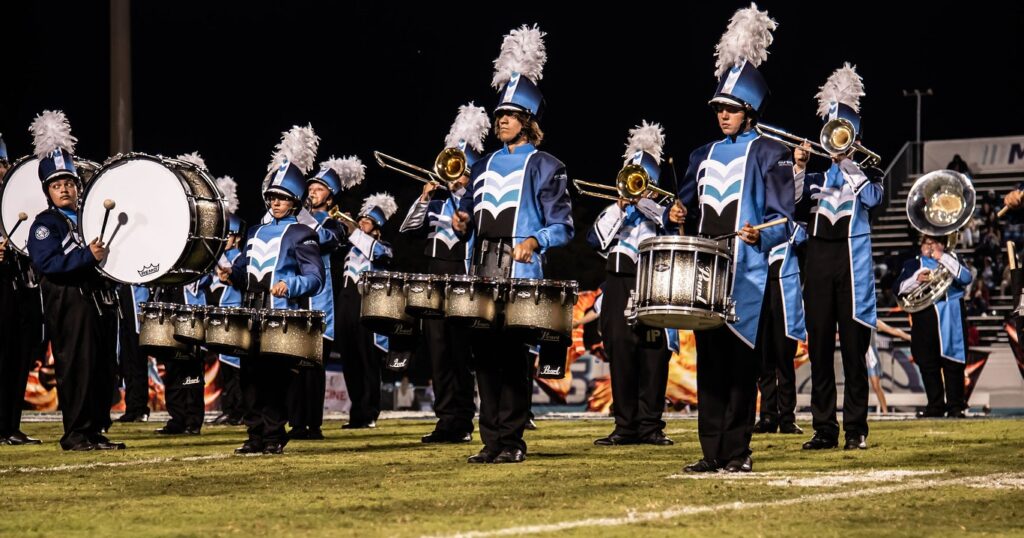International Women’s Day: 5 extraordinary women who shaped Alabama
Reading time: 8 minutes

March is Women’s History Month. Today, March 8, is International Women’s Day. Today, and more broadly, this month, are for recognizing the women in our society that have been the movers, shakers, and change-makers.
In that vein, we’ve complied a list of 5 extraordinary women, all from Alabama, to pay tribute to their contributions!
1. Julia S. Tutwiler (1841-1916)

Born in Tuscaloosa, Julia S. Tutwiler was raised by a father who believed in intellectual gender equality. For this reason, Tutwiler was sent off to a northern boarding school where she was well-educated. During the Civil War, Tutwiler returned to Alabama to become a teacher.
In the late 1870s, she would go on to found the Tuscaloosa Benevolent Association. This was an organization designed for other women with similar interests of prison and education reform to organize efforts to this end. Her work would get her promoted to the superintendent of prison reform at the Women’s Christian Temperance League. In this position, she travelled around Alabama, speaking at prisons on reform. Some of the changes she implemented during this time were:
- Separate prison facilities for women
- Increased sanitation and habitability standards in prison
- Appointment of a state prison inspector
- Night and Sunday school funding for prisons
- An attempt to end the convict-lease system, where inmates could be used for inexpensive labor in places like mines
Her efforts in prison reform led to the state of Alabama naming the first ever women’s prison after her. To this day, Tutwiler Maximum Security Prison houses the most dangerous female inmates in the state.
Tutwiler was also a champion of women’s education. She helped found what is now the University of West Alabama by combining it with an existing women’s school, ensuring the University would accept women’s applications as well. In this effort, Tutwiler secured the first-ever state appropriations for women’s education at this school.
Tutwiler would do a similar thing with trade schools for women. Noticing the gaps in the workforce, particularly skilled labor, post-Civil War, Tutwiler advocated for women in trade. She helped establish a trade school for Women in Montevallo, now the University of Montevallo.
If the name Tutwiler sounds familiar to any University of Alabama grads, it’s because Tutwiler Hall, the women’s dorm, was named in her honor after she fought for, and won, the right for women to be students at U of A.
Tutwiler’s advocacy for those who society often forgot—women and prisoners—had a ringing impact that we still feel today.
2. Pattie R Jacobs (1875-1935)

Pattie R Jacobs’ story in Alabama starts tragically. Following the death of her father, she and her mother moved from Tennessee to Birmingham. She attended Belmont University in Tennessee to become a teacher before her move. While in Birmingham, she met Solon Jacobs who would become her husband. Solon was wealthy, but he also encouraged the radical streak in Pattie, helping fund her future endeavors in suffrage.
In 1910, Pattie listened to a speech by Jane Addams, who was already a popular suffragist. After the speech, Pattie was inspired and determined to join the cause. In just a year, she helped found the Birmingham Equal Suffrage Association, where she was elected President. By 1912, the group had expanded statewide, becoming the Alabama Equal Suffrage Association. Pattie was similarly elected President of this group.
Leading the charge of women’s suffrage in Alabama gained Pattie national recognition. When the state of Alabama declined to recognize the 19th Amendment after its passing, the Democratic Party of Alabama appointed Pattie as their Alabama representative for the national committee. This made Pattie Jacobs the first woman on the democratic national committee.
Pattie Jacobs would pass away almost 20 years before her vote would be counted in the State of Alabama, despite being able to cast a ballot in 1920. It took until 1958 for the Alabama Legislature to fully ratify the 19th Amendment. However, without Pattie’s efforts, women in Alabama may not have the right to vote at all.
3. Mahala A. Dickerson (1912-2007)

Mahala A. Dickerson was born in an unincorporated part of Montgomery to grocers in 1912. As a child, she was highly gifted and went to Montgomery Industrial School for Girls, where she met Rosa Parks. The two formed a fast and life-long friendship.
After graduating with a degree in sociology from Fisk University, Dickerson does the whole get-married-and-have-kids thing in 1935. After her marriage failed within a year, Dickerson changed course by enrolling in law school. She received her law degree from Howard University in Wasington, D.C. in 1948. She passed the bar exam that same year, becoming the first black female attorney admitted into the Alabama bar.
Dickerson opened up shop in Tuskegee and Montgomery and began practicing law with a particular eye for underserved communities. She often worked pro-bono (for free) in order to ensure those who couldn’t afford attorneys had good representation.
After a second failed marriage in Indiana, Dickerson visited Alaska, prompting her to move there and take her law practice with her. She sat the bar in Alaska and passed, becoming the first black woman admitted into the Alaska bar. She continued her work of advocacy through law here, famously challenging the gender pay gap in court during the 1950s.
Dickerson would eventually become the first black woman elected as President of the National Association of Women Lawyers. Her advocacy work and efforts have paved the way for many young women who may follow in her footsteps.
4. Fannie S Motley (1927-2016)

Fannie Motley is heralded as a scholar and as the first black woman to graduate from Springhill College in Mobile. Motley was born in Monroeville and attended Selma Baptist college until her studies were interrupted by the birth of her children.
Attendance at Springhill was almost serendipitous for Motley, as the school had only recently desegregated. Having grown up in the deeply segregated south, Motley was unsure about her safety in such a recently desegregated school. Her husband pushed her to enroll, and she did in December of 1954.
Black universities at this time were unaccredited which meant none of Motley’s previous coursework at Selma Baptist would apply towards her Springhill degree. In short, she would have had to start over. This did not work for Motley, and she insisted on admittance as a junior with her previous credits applied, on the contingency that she met the caliber of work from other junior-level students. Springhill College eventually agreed and the end of her first semester she was an honors student.
Often times, Motley found herself the only black person and the only woman in her classes. Despite this, however, she was able to form strong bonds with professors and students alike. Her senior year, she carried around an autograph book. The signatures and notes in this book are anecdotal evidence of the ease with which Springhill students accepted desegregation in education.
Motley eventually became a teacher with her degree, directly giving back to the Mobile community.
Her story is a testament to intellectual determination and the power of working together to uplift each other.
5. Angela Y Davis (1944- )

Angela Davis was born in what was then-called Bombingham, a macabre nickname given to Birmingham during the Jim Crowe Era due to bombings of black neighborhoods by white supremacists. At four years old, the house next door to Davis’ was blown up.
As a child, she had no schooling option other than segregated schools, which were overcrowded and underfunded. Seeking a way out, she won a scholarship for a boarding school in New York, where she attending high school.
Davis studied French at Brandeis University, spending her junior year at the University of Paris. While in France, she learned of the 16th Street Bombing, where four family-friends of Davis were killed in a white supremacist bombing on a black church. This incident lit a fire in Davis’ belly, partially turning her towards the radicalism she would later be known for.
In 1967, she returned to the United States and, more specifically, Alabama. She was seeking her doctorate in philosophy, but more importantly wanted to help with the footwork of the Civil Rights Movement. During this period, she boldly declared herself a communist, during the Cold War no-less. She also aligned herself with members of the Black Panthers, a militant Civil Rights group.
Always a controversial figure, Davis was regularly the subject of death-threats from those who could not tolerate her image, her message, or both in tandem. She is, and always has been, quite outspoken on issues of feminism, race, gender, and equality. She still uses her voice for that to this day.







